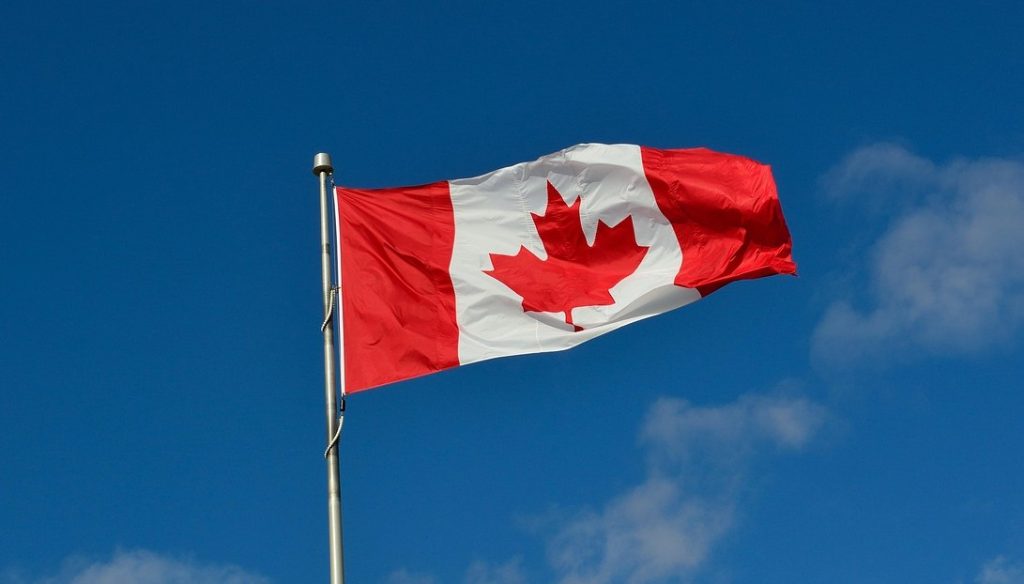Entering Canada with an OWI: What You Need to Know if You Have a DUI or Drunk Driving Conviction
If you have an OWI or DUI drunk driving conviction, there are still ways you can legally enter Canada.

Entering Canada legally with an OWI or DUI Drunk Driving Conviction
If you have a prior OWI (Operating While Intoxicated), DUI (Driving Under the Influence), or drunk driving conviction in the United States, entering Canada legally may not be as simple as showing your passport. Canada treats these offenses seriously—even a single conviction can make you criminally inadmissible. Whether you want to visit Canada for business, family, or vacation, you must first understand the legal process and take steps to resolve your admissibility.
The good news: if you’re serious about entering Canada with an OWI or DUI on your record, legal options exist—and the attorneys at LEWIS & DICKSTEIN, P.L.L.C. can help you pursue the path most likely to succeed.
Understanding Criminal Inadmissibility to Canada
Canada bars entry to foreign nationals who have committed offenses considered “serious criminality” under Canadian immigration law. OWI and DUI offenses qualify as serious, even if they were misdemeanors in the United States. This means Canadian Border Services Agency (CBSA) officers can—and often do—deny entry to travelers with a drunk driving conviction.
The law treats single and multiple convictions differently:
- One OWI or DUI conviction: Before December 2018, people with one conviction could be deemed rehabilitated after 10 years and enter Canada without applying for special permission. However, Canada changed its law to elevate DUI-type offenses to “serious criminality,” removing this automatic rehabilitation in many cases. You now may need to apply for rehabilitation, even with a single conviction.
- Two or more convictions: If you have multiple OWIs or DUIs on your record, you cannot be deemed rehabilitated. You must apply for individual criminal rehabilitation or a Temporary Resident Permit (TRP) before entering Canada.

Options for Overcoming Inadmissibility
You can regain legal eligibility to enter Canada through two main options: a Temporary Resident Permit (TRP) or Criminal Rehabilitation. Each has different requirements and advantages, depending on your circumstances.
Temporary Resident Permit (TRP)
A TRP allows you to enter Canada temporarily, even though you are otherwise inadmissible. Immigration officials issue TRPs when your reason for traveling to Canada outweighs any potential risk you pose to the public.
Key facts about TRPs:
- They can be valid for a single entry or multiple entries.
- You may apply even if less than five years have passed since the completion of your sentence.
- TRPs require detailed documentation and a strong argument for why your presence in Canada is justified.
- They are discretionary, meaning approval is never guaranteed.
TRPs are often ideal for short-term or urgent travel needs, such as attending a wedding, meeting a business client, or visiting a sick relative.
Criminal Rehabilitation
Criminal rehabilitation is a permanent solution to inadmissibility. Once granted, it clears your record for immigration purposes, allowing you to enter and exit Canada freely, provided no new offenses occur.
To qualify for criminal rehabilitation:
- At least five years must have passed since you completed all aspects of your sentence, including jail time, fines, probation, or license suspension.
- You must provide extensive documentation, including court records, police clearances, and evidence of good conduct.
- Canadian immigration officials will assess your likelihood of reoffending based on your application and supporting materials.
If you meet the criteria, criminal rehabilitation provides the most secure and lasting way to travel to Canada with an OWI or DUI on your record.

Determining Eligibility for Criminal Rehabilitation
To determine whether you qualify for criminal rehabilitation, you must calculate the date on which you completed all sentencing requirements. The five-year waiting period begins on that date—not the date of conviction.
Other factors immigration officials consider:
- The seriousness and frequency of the offenses.
- Whether you’ve demonstrated stable employment and a law-abiding lifestyle.
- The amount of time that has passed since your last offense.
For applicants with multiple convictions or aggravating factors, the process for entering Canada with an OWI or DUI conviction becomes more complex and demands a carefully prepared application.
The Application Process for Criminal Rehabilitation
The application for criminal rehabilitation is lengthy, evidence-based, and must be error-free. Here’s what the process looks like:
- Gather Required Documents
Collect court documents, certified copies of police reports, sentencing records, and evidence that you fulfilled all conditions of your sentence. You’ll also need personal documents such as your passport and birth certificate. - Demonstrate Rehabilitation
Write a detailed personal statement explaining your offense(s), what you’ve done since to turn your life around, and why you’re unlikely to reoffend. Letters of recommendation, proof of employment, and records of counseling or treatment help build your case. - Submit the Application
Mail the complete application package to the appropriate Canadian consulate or visa office. Ensure all documents are accurate and translated if necessary. - Wait for a Decision
Processing times can take 6 to 12 months or longer. Canadian officials will review your file and decide whether you are rehabilitated.
Applicants who omit key documents or submit incomplete forms risk rejection or delays. A precise, persuasive, and well-documented application greatly increases the chances of success.

Why Choose LEWIS & DICKSTEIN, P.L.L.C. for Help Entering Canada with an OWI or DUI Driving Conviction
Applying for criminal rehabilitation or a TRP is not just a form-filling exercise. It’s a legal process that demands precision, strategy, and persuasion. At LEWIS & DICKSTEIN, P.L.L.C., we help clients:
- Understand their eligibility and which route—TRP or rehabilitation—best fits their case.
- Build compelling, well-documented applications that meet Canadian immigration standards.
- Avoid costly errors that result in delays or denials.
- Communicate effectively with Canadian immigration officials and consular offices.
We’ve successfully represented countless clients with prior OWI and DUI convictions who now enter Canada without fear of being turned away. We are tenacious, thorough, and experienced—exactly what you need to overcome the legal barriers to visiting Canada.

The experienced defense attorneys at Lewis & Dickstein, P.L.L.C. are there for you!
Whether you’re seeking a temporary solution or a permanent clearance, LEWIS & DICKSTEIN, P.L.L.C. is your best hope for success. We understand how high the stakes are, and we have the experience and reputation to help you achieve your goal. Contact us today to schedule a confidential consultation and begin the process of restoring your ability to travel freely to Canada.
Call us today at (248) 263-6800 for a free consultation or complete an online Request for Assistance Form. We will contact you promptly and find a way to help you.













